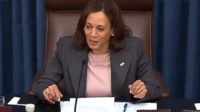Bricklayers' President Jack Joyce, 77, Pushed for Workers
 |
| Joyce |
John T. "Jack" Joyce did not spend much time as a jobsite union bricklayer, but he staunchly defended the craft against outside politics and changing market forces in his 20 years as president of the International Union of Bricklayers and Allied Craftworkers, the longest of any leader, and in a longer career pushing new ideas to serve its members.
Joyce died on Feb. 14 in Washington, D.C., of cancer, says a union spokeswoman. He was 77.
In a statement, the union noted Joyce's efforts in creating new benefits programs "and an expanded governance structure that increased participation among the union's diverse membership."
A Chicago native with family in the bricklaying trades, Joyce joined Local 21 as an administrator in the 1960s and, soon after, began his climb up the ranks of the international in Washington.
"Jack had trade unionism in his blood. He was a rare individual—someone I can truly say was born to lead. He had a deep intellect and an agile mind," says current union President James Boland. "He believed passionately in the dignity of the individual worker."
Joyce also served as a vice president of the AFL-CIO Executive Council, a member of the governing board of presidents in its Building Trades and Construction Dept. and a 15-year U.S. delegate to the International Labor Organization.
Union officials particularly credit Joyce for expanding training for bricklayers and persuading signatory contractors to fund the added cost. "Masonry contractors were not too supportive of that," says John Flynn, who succeeded Joyce as president in 1999.
Flynn credits Joyce with developing the union's national training operation—the International Masonry Institute—although smaller forerunners dated from the 1970s.
The push for training at all union levels resulted in construction of the union's $30-million, 25-acre national training center complex in a Maryland suburb of Washington, D.C. in 2007.
Joyce also funded a labor research program at his alma mater, the University of Notre Dame.
Joyce sided with Robert Georgine when anti-incumbent sentiment threatened to unseat the former building-trades president in 1995, terming the challenge a "power grab."
Joyce advocated building trades' solidarity as a way to enhance its influence in the AFL-CIO and to assist in any effort to consolidate its member unions. He favored a single construction union with "strong craft divisions," he told ENR in 1995.
Despite his push for union harmony, Joyce tussled with the carpenters' union after its push to take over the tile-setters' union, which had been part of the bricklayers' group, says Flynn.
Joyce also fought off a 1998 bricklayers' election challenge from then-union secretary-treasurer L. Gerald Carlisle; the defeated executive later unsuccessfully sought to overturn the vote through the U.S. Labor Dept. and in court.
"It was clear to us from the beginning that [DOL's] allegations were unfounded and hypertechnical," Joyce said at the time. "It's too bad it has taken three years, a lot of money and a lot of time to get our position confirmed by the court." He blasted impeachment proceedings against President Bill Clinton as "political rabies" but withdrew support for his second term because of differences on social issues.








